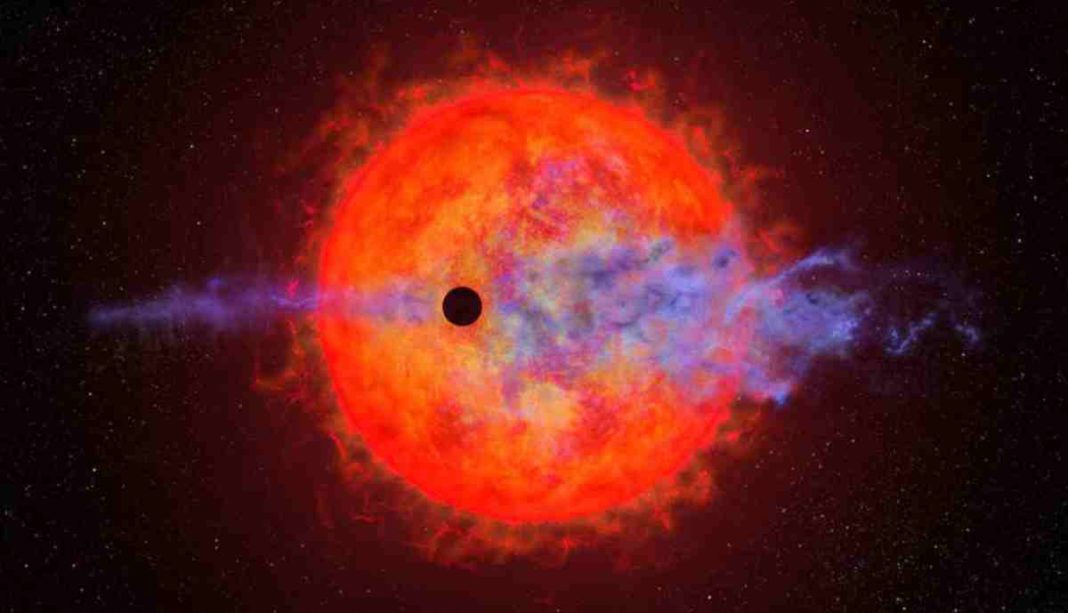UNITED STATES: In a remarkable celestial discovery, NASA’s Hubble Telescope has revealed a young planet experiencing inexplicable “hiccups” in its atmosphere as it orbits around a vibrant red dwarf star, AU Microscopii (AU Mic).
The revelation, announced on Thursday, has left astronomers astounded and eager to understand the dynamics behind this extraordinary phenomenon.
Dubbed AU Mic b, the planet lies a mere 32 light-years away from Earth and constitutes one of the youngest planetary systems ever observed.
The star, AU Mic, is itself a youthful celestial body, a mere 100 million years old in contrast to our Sun, which has endured for 4.6 billion years.
The close proximity of AU Mic b to its star, at just 6 million miles (approximately 10 million km), translates to a rapid orbital period of a mere 8.46 days, and the planet’s diameter is four times that of Earth.
What has truly baffled scientists is the variation in AU Mic b’s atmosphere, described as “puffs,” characterized by sudden bursts of atmospheric loss followed by periods of near stagnation.
This peculiar behavior was detected by the Hubble Telescope and meticulously documented in a study published in The Astronomical Journal on July 23, after undergoing rigorous peer review.
Keighly Rockcliffe, a prominent researcher from Dartmouth College, expressed her fascination with the discovery, stating, “This frankly strange observation is kind of a stress-test case for the modelling and the physics about planetary evolution. This observation is so cool because we’re getting to probe this interplay between the star and the planet that is really at the most extreme.”
The leading cause of this atmospheric disturbance is attributed to powerful stellar flares emanating from AU Mic.
These intense magnetic fields become entangled in the star’s atmosphere, and when the entanglement reaches its peak, the flares release energy that is 100 to 1,000 times more potent than solar flares from our own Sun.
Despite the profound findings, the root cause of these “hiccups” remains elusive. Scientists are currently exploring various theories to explain this phenomenon.
One possibility is that AU Mic b’s magnetic field is in a constant state of agitation, leading to unpredictable atmospheric variations.
Another intriguing notion is that the “hiccupping” may be an optical illusion, possibly arising from moments when the flares photoionize escaping hydrogen, rendering it temporarily invisible to detection equipment.
As speculation, researchers are also considering that the stellar wind itself might shape the planet’s atmospheric outflow, causing detectable and undetectable periods. If proven true, this would be the first instance of such a phenomenon ever observed.
This extraordinary discovery carries immense significance for our understanding of planetary development and the potential for life to exist in similar conditions.
By studying AU Mic b’s atmospheric variations, scientists hope to gain invaluable insights into the complex interactions between planets and their host stars.
Also Read: NASA’s DRACO Program to Revolutionize Space Travel with Nuclear-Powered Rocket



